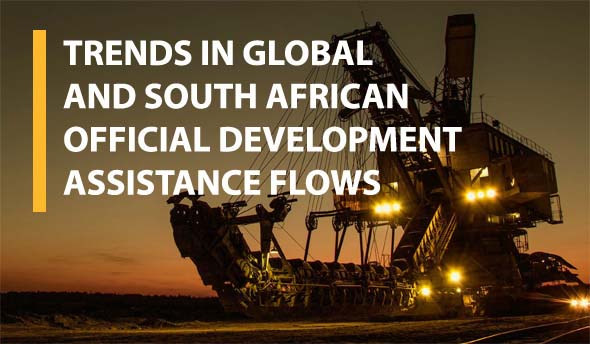The Economic Sector deals with management of development cooperation in support of sustainable economic growth and job creation. The priorities within this sector are based on the National Development Plan (NDP) Vision 2030 and fourteen MTSF outcomes that will tackle the challenges facing the country in regard to economic growth and job creation. The key priority for the sector is therefore to ensure that development cooperation contributes towards the following government outcomes: | Outcome 4: | Decent employment through inclusive economic growth. | | Outcome 5: | A skilled and capable workforce to support an inclusive growth path. | | Outcome 6: | An efficient, competitive and responsive economic infrastructure network. | | Outcome 7: | Vibrant, equitable and sustainable rural communities with food security for all. | | Outcome 9: | A responsive accountable effective and efficient local government system. |
| | To advance the work within this sector, engagements take place with relevant key departments including, Trade & Industry, Economic Development, Public Enterprises, Rural Development, Agriculture and Tourism. Key Public Entities within this sector include the Development Bank of Southern Africa and Industrial Development Cooperation, The Land Bank and Small Enterprise Finance Agency. 
Taking into account priorities of the South African government, aligned to the specialized interests of the development partners, support for development cooperation within this sector is concentrated within the following key sub sectors: |
Since 1994 there has been various economic development programmes supported through development cooperation. These include programmes such as the Local Economic Development (LED) programmes across provinces, SMMES programmes (Risk Capital Facility, and Sector Wide Enterprise Employment and Equity), Rural Development and Land Reform, and the Employment Creation Fund. Creating more jobs through faster inclusive and sustainable economic growth focusing on: | Rural development including agriculture and agro-processing that is integrated and supports mainstream economic activities such as: | • Skills Development • Infrastructure development • Enterprise development for job creation and innovation | • Land Reform • Agriculture and Food Security • Transformation of rural economies and livelihoods |
|